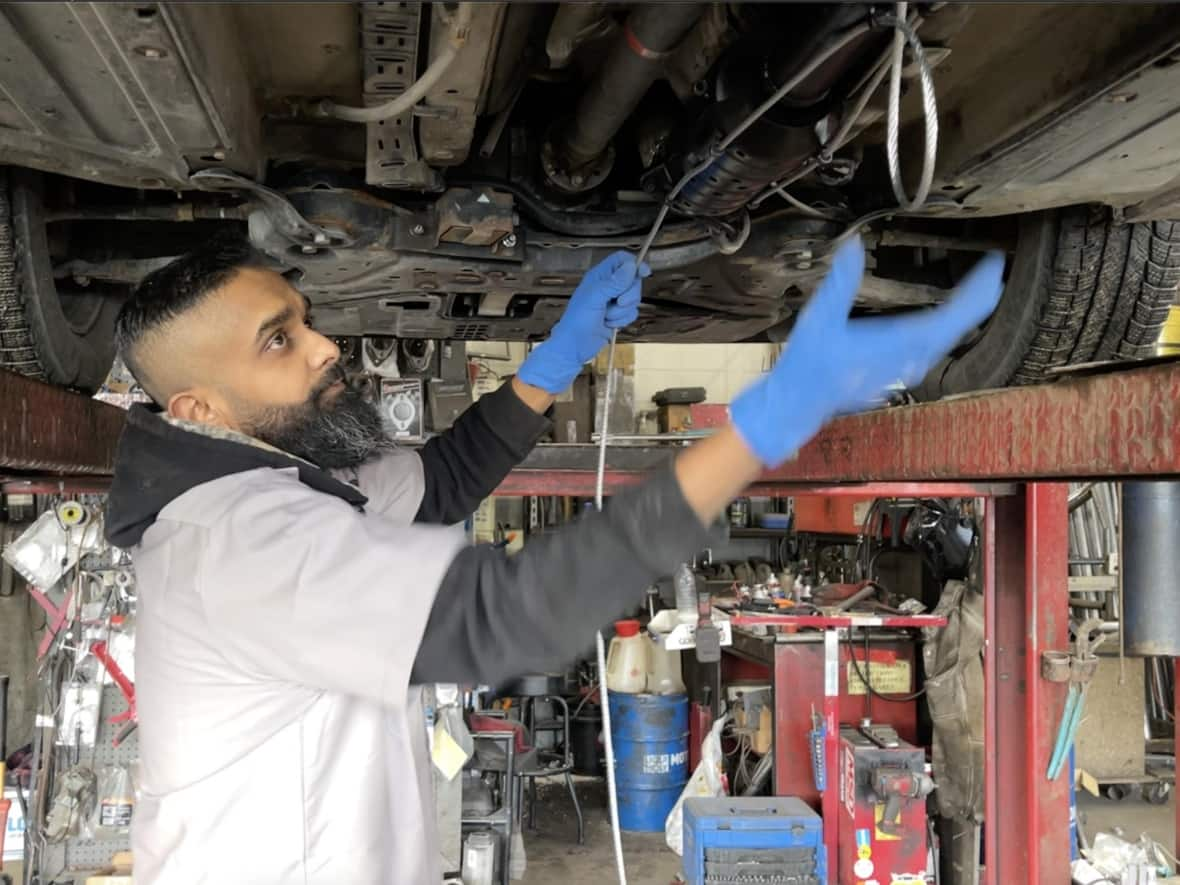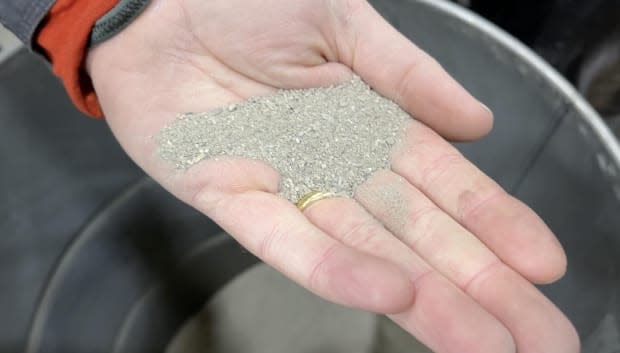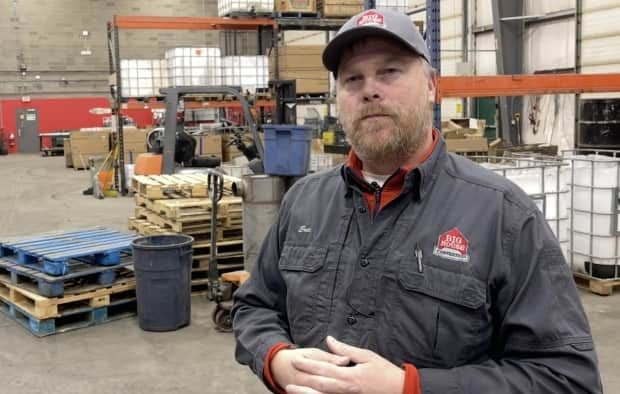Alberta made it tough to sell catalytic converters to scrap metal dealers. What's happened since?

Eric Grand-Maison says buying and recycling old catalytic converters used to make up a big part of his business. But since the provincial government brought in new rules for sellers and buyers, sales have cooled considerably at Big House Converters.
He says there appears to be a burgeoning underground market for the valuable devices.
Grand-Maison flicked through a long list of ads on his phone that offer cash for converters and cars — a practice that may circumvent legislated changes approved in late 2020.
"It hasn't done anything to stop the theft. Theft has only increased, not decreased," he said.
The Calgary Police Service says 2,754 catalytic converter thefts were reported in 2022 through to the end of October. In all of 2021, there were 1,560. CPS cautions that the spike may be the result of late reporting of thefts that happened the previous year. Regardless, the thefts occurred after the new requirements were put into effect.
Alberta passed the Protecting Alberta Industry from Theft Act in 2020. The legislation creates requirements for scrap metal dealers to report transactions to law enforcement and for all payments to be made using traceable forms of currency, such as electronic transfers or cheques.

Sellers also need to provide government-issued photo ID. Dealers are required to record and retain a seller's ID information as well as details of the transaction.
"We were doing an average of about 5,000-10,000 converters a month, and then now we're probably doing about one [thousand] to 2,500 converters a month," said Grand-Maison.
Grand-Maison believes the new regulations have created a lucrative black market for the items.
"It's all going into underground because we can't pay cash," he said.

Catalytic converters are part of a vehicle's exhaust system, making pollutants less toxic before they're expelled out the tailpipe. The converters contain small amounts of expensive metals such as platinum, palladium and rhodium, which have risen in value in recent years.
"There has been a spike in the thefts across the country, not just Calgary," said Staff Sgt. Mark Auger with the city's District 6 general investigations unit.
"It's no secret, the components of the converters have a high dollar value, which makes them a target, an opportunistic target for the offenders," he said.
"And there is a high reward when they're able to exchange that component for money."
Alberta RCMP say the number of catalytic converter thefts reached 1,302 by the end of September. There were 1,452 for all of 2021. Those stats are from all areas under RCMP jurisdiction in Alberta, which excludes most of the larger municipalities.
Calgary police say thieves will take a stolen converter to a third party, who then transfers it to a legal recycler, who purchases it.
According to ALERT, the Alberta Law Enforcement Response Team, scrap metal dealers in Alberta reported 8,035 catalytic converter transactions through the first nine months of 2022 worth $17.2 million.
Thefts bring opportunity
One of the owners of a Minute Muffler in northeast Calgary says it's unfortunate so many thefts are being reported, but it's also provided a business opportunity.
They install wire cables around catalytic converters in an effort to deter thieves.
"Anything to make it a little harder, a little longer for them to steal," said Ravi Chandra.
"If they want it, they're gonna get it. But if you're in the mall, and it takes a few extra minutes or seconds to take it, they might just move on to the next vehicle," he said.
The cables range in price depending on the vehicle, but they could cost a couple of hundred dollars to purchase and install.
Grand-Maison offers a laser engraving service that imprints the vehicle identification number directly onto the converter. It could potentially help police trace the device back to the owner.
Grand-Maison says he would like to see a crackdown on buyers who are posting ads that appear to skirt provincial regulations. He says they should not be allowed to operate without a valid business licence.

The new requirements include stiffer penalties for people and businesses found to be dealing in stolen scrap metal. Along with increased fines, an offender also faces up to a year in jail.
"It's driven the industry underground to where it's just people that buy it with cash, and they ship it out to another facility, whether it be out of province or out of country."
Auger says if someone files a complaint about a suspected cash buyer, they will investigate.
"Until they're flagged to our attention, we can't properly address them," he said.
A spokesperson for the minister of public safety and emergency services would only say consultation with scrap metal dealers is continuing, but no other details were provided.
"We continue to work with scrap dealers to help address any challenges related to the implementation of the act, and encourage any Albertans who have been targeted by scrap or catalytic converter thieves to contact their local police service," the spokesperson said in an email.
Bryan Labby is an enterprise reporter with CBC Calgary. If you have a good story idea or tip, you can reach him at bryan.labby@cbc.ca or on Twitter at @CBCBryan.


